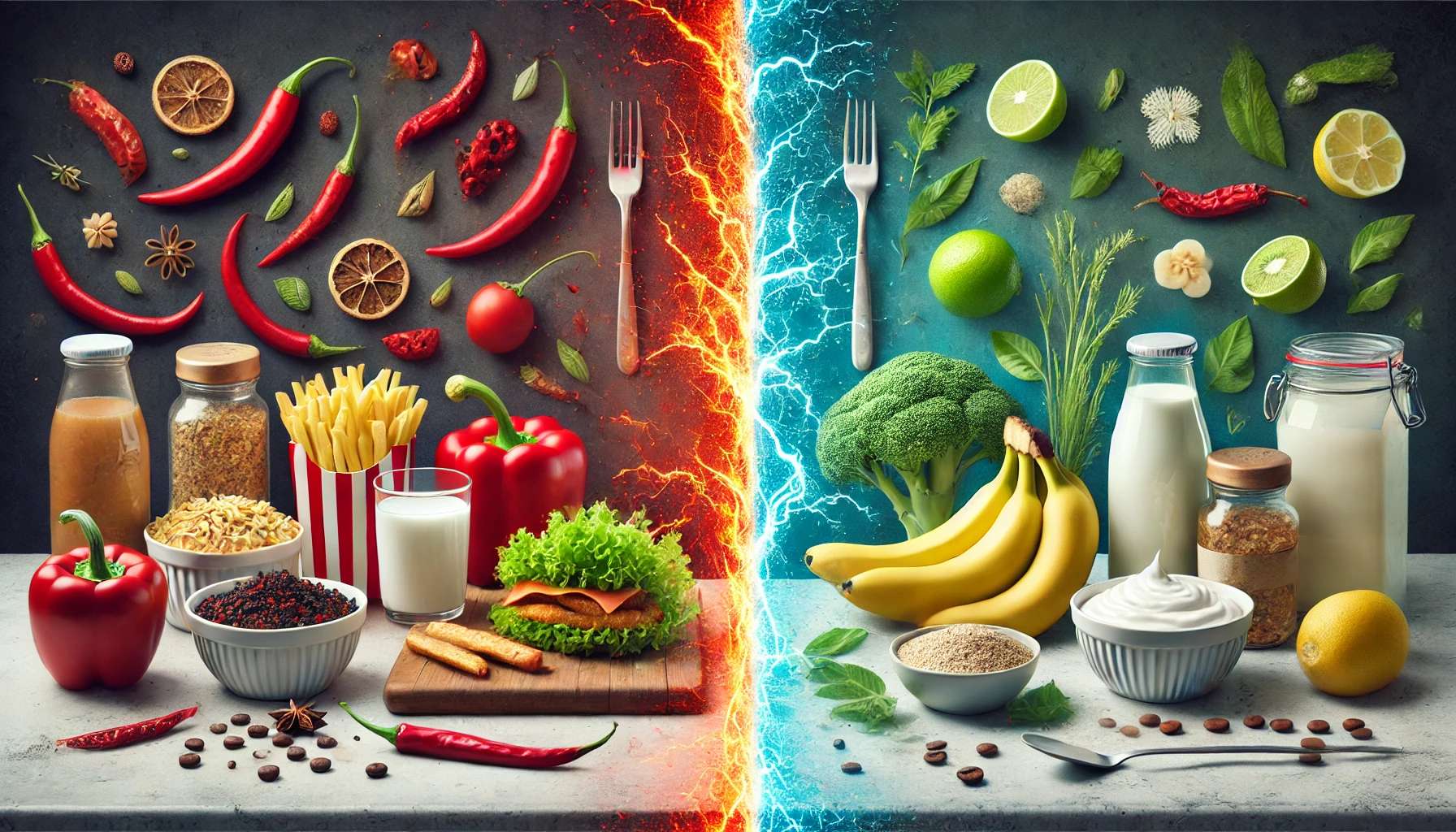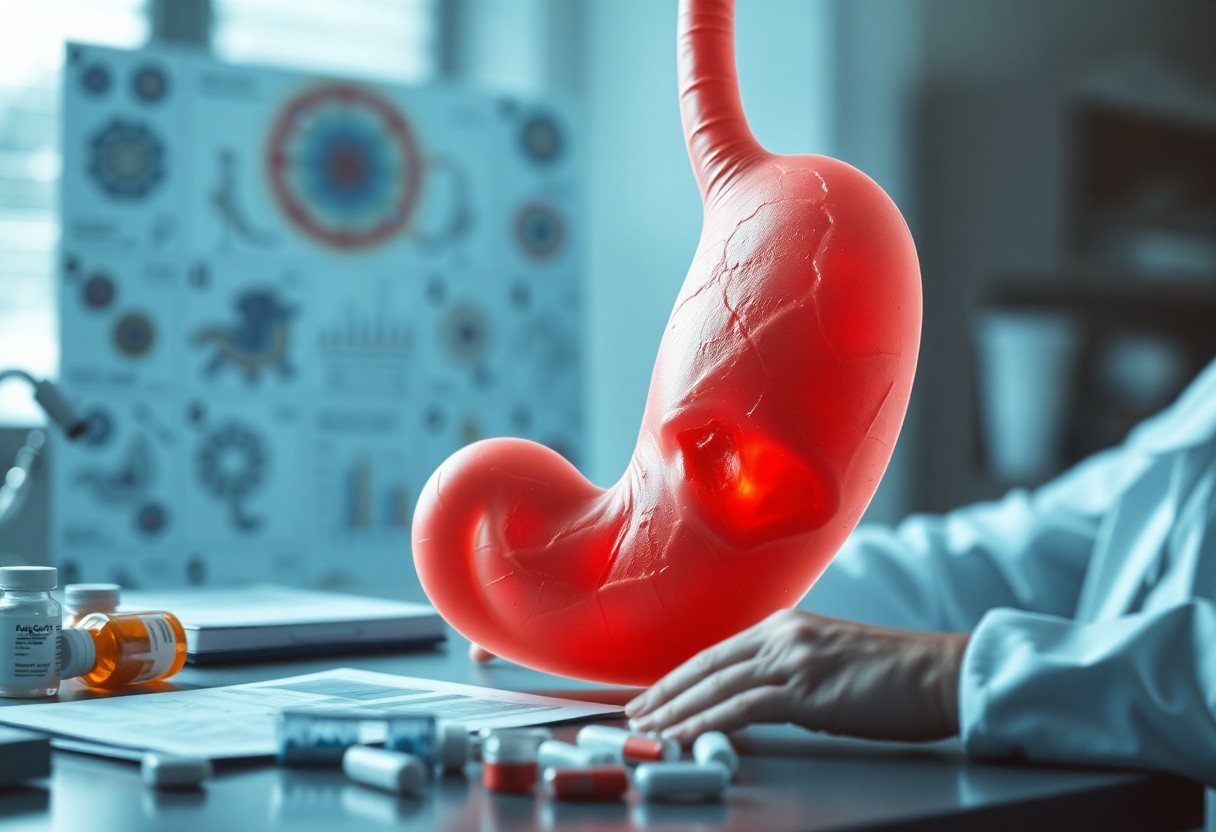Ad Blocker Detected
Our website is made possible by displaying online advertisements to our visitors. Please consider supporting us by disabling your ad blocker.
Gastritis is a prevalent digestive condition, touching millions globally, yet often misunderstood. At its core, it’s inflammation of the stomach lining, which can result in symptoms ranging from mildly uncomfortable to downright incapacitating. In this discussion, we’ll unravel the layers of gastritis, diving into its origins, warning signs, possible risks, and treatment strategies.
What Is Gastritis?
Gastritis is essentially the stomach’s way of crying out for help. It occurs when the inner lining—the mucosa—is inflamed or damaged. Normally, this lining secretes mucus to shield the stomach from its own acidic environment. But when that barrier falters, the stomach becomes vulnerable, akin to a castle without its moat.
Is Gastritis A Disability?
While gastritis doesn’t neatly fit the definition of a disability, its effects can be life-altering. Severe cases disrupt routines and chip away at mental and physical well-being. Consider these potential impacts:
- Work or school interruptions: Chronic pain and nausea make maintaining daily commitments a battle.
- Social withdrawal: Eating out or even simple gatherings feel impossible with unpredictable symptoms.
- Diminished quality of life: Persistent discomfort steals energy, focus, and joy from everyday activities.
What Are The Gastritis Symptoms?
Symptoms of gastritis vary—sometimes subtle, other times screaming for attention. These are the usual suspects:
- Abdominal Pain: A dull, burning sensation in the upper stomach. After meals, this pain can intensify, especially with acidic or spicy foods.
- Nausea and Vomiting: A queasiness that may evolve into vomiting—your stomach’s plea for relief.
- Bloating and Fullness: Even a modest meal can leave you feeling uncomfortably stuffed.
- Loss of Appetite: A painful digestive process dampens hunger and may lead to noticeable weight changes.
- Indigestion: Think heartburn, gas, or frequent burping—common companions to gastritis.
How Can Gastritis Be Diagnosed?
Getting to the root of gastritis isn’t always straightforward, but doctors often rely on a mix of these tools:
- Medical History and Physical Exam: Pinpointing patterns in your symptoms and assessing your lifestyle.
- Blood Tests: These uncover anemia or other clues about what’s happening inside.
- Stool Tests: Signs of internal bleeding—such as blood in stool—help refine diagnosis.
- Endoscopy: A camera-guided look inside your stomach, often paired with a biopsy.
- Breath Test: Detects H. pylori, a bacterium infamous for its gastritis connection.
When to Worry About Gastritis
Some symptoms demand immediate action. Red flags include:
- Severe, unrelenting abdominal pain
- Vomit resembling coffee grounds (a sign of blood)
- Black, tarry stools
- Difficulty swallowing
- Symptoms of anemia like fatigue or breathlessness
How Can Gastritis Get Worse?
Neglecting gastritis or mismanaging triggers can amplify its toll:
- Irritants galore: Overdoing alcohol, NSAIDs, or spicy foods worsens inflammation.
- Untreated H. pylori infection: This can snowball into ulcers, stomach cancer, or worse.
- Autoimmune disorders: The body mistakenly attacks itself, intensifying damage over time.
What Are The Complications Of Gastritis?
Unchecked gastritis can spiral into severe issues:
- Peptic Ulcers: Open sores in the stomach or duodenum result from prolonged damage.
- Stomach Cancer: Long-standing inflammation raises cancer risks, especially with autoimmune gastritis.
- Anemia: Blood loss depletes iron stores, sapping energy and strength.
- Malabsorption: Your body struggles to absorb key nutrients, setting the stage for deficiencies.
How Does Gastritis Affect The Body?
The ripple effects of gastritis go beyond digestion:
- Digestive System: Pain and nausea interfere with proper nutrient breakdown and absorption.
- Immune System: Chronic inflammation leaves you vulnerable to other illnesses.
- Mental and Emotional Health: Living with gastritis can heighten anxiety, depression, and fatigue.
How to Treat Gastritis?
Treating gastritis focuses on soothing the inflammation, alleviating symptoms, and addressing root causes.
How Treat Gastritis At Home?
Start small, with lifestyle shifts:
- Adjust your diet:
- Ditch irritants like spicy dishes, coffee, or fizzy drinks.
- Eat small meals more often—give your stomach less to process.
- Lean on soothing foods: think plain yogurt or well-cooked veggies.
- Tame your stress:
- Explore yoga, mindfulness, or even just a walk in fresh air.
- Sleep well—rest fuels recovery.
Medications:
Sometimes, medication is essential:
- PPIs: These calm the stomach by curbing acid production.
- Antacids: Quick relief for those heartburn-filled moments.
- Antibiotics: Eradicate H. pylori and cut off its havoc-wreaking potential.
How Can Gastritis Be Cured Permanently?
For many, managing gastritis means finding balance:
- Eradicate H. pylori: Tackling this culprit head-on can make a world of difference.
- Lifestyle upgrades: Good food choices and stress control lower the odds of flare-ups.
- Monitor and adapt: Work with your doctor to keep symptoms—and risks—under control.
How Can Gastritis Be Prevented?
Prevention boils down to staying proactive:
- Eat smart: Prioritize fruits, vegetables, and whole grains.
- Limit alcohol: Moderation is key to protecting your stomach.
- Minimize NSAID use: Discuss safer options with your doctor.
- Stress less: Your gut—and mind—will thank you.
- Stay hygienic: Handwashing can help fend off H. pylori.
Conclusion
Gastritis is a widespread condition with a significant impact on those it touches. But by understanding its causes, symptoms, and treatments, you can take control and reclaim your well-being.
Share health.
Disclaimer: This information is for general purposes and does not replace professional medical advice. Always consult a healthcare provider for diagnosis and treatment.


